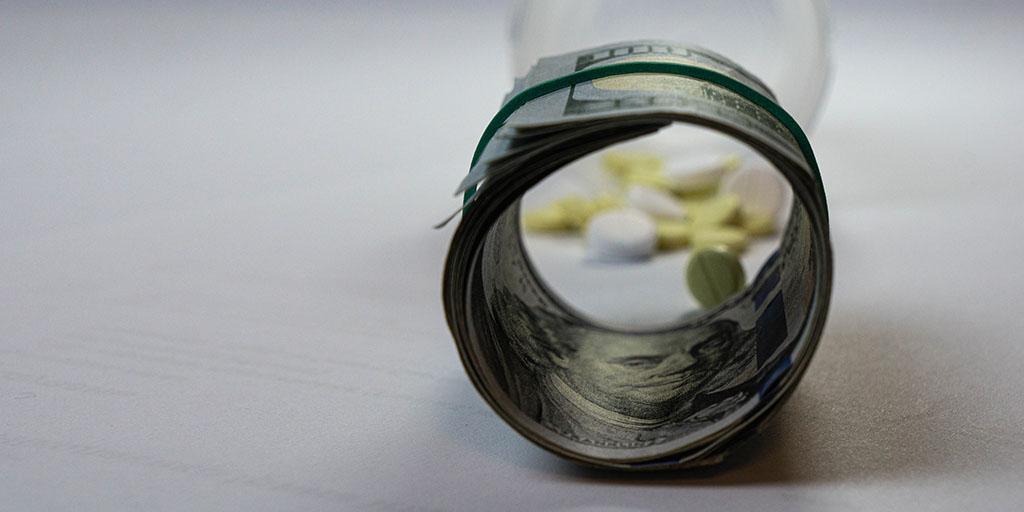
Supply and Demand: The Economics of the Illicit Drug Crisis
All the resources of the United States government to date have not been able to stem the flow of illicit drugs onto the streets and into campuses, workplaces, and even boardrooms across the nation. This has had disastrous consequences on families and society. The Drug Enforcement Administration was created in July of 1973—but despite the best of intentions, it has not been able to eliminate the widespread use of narcotics and other hallucinatory drugs.
With the introduction of fentanyl, a powerful synthetic opioid 50 times more powerful than morphine, deaths from accidental overdoses have cascaded nationally. From 2018 through 2023, more than 250,000 deaths have been attributed to its use! Its extreme danger is well known by doctors and by users on the streets—so, why is it so prevalent? Here enters the basic economic principle of “supply and demand.” The market has not been eliminated because there is tremendous demand for illicit drugs. Those who are addicted will pay whatever it takes, generating huge sums of money for unscrupulous people willing to take the risk of fines and imprisonment to provide the drugs. This revenue is so great that whole societies and even some national governments are dominated by cartels that produce, distribute, and sell deadly, addictive products.
Yet, this seemingly modern problem has ancient roots. The Bible says that in the time of Noah, “the Lord saw that the wickedness of man was great in the earth, and that every intent of the thoughts of his heart was only evil continually” (Genesis 6:5). Solomon was inspired to write, “That which has been is what will be, that which is done is what will be done, and there is nothing new under the sun” (Ecclesiastes 1:9).
Law enforcement has a necessary role in solving this problem. “Because the sentence against an evil work is not executed speedily, therefore the heart of the sons of men is fully set in them to do evil” (Ecclesiastes 8:11). Prompt action by police, prosecutors, and courts can reduce the flow and sale of illicit drugs. However, until the demand is greatly reduced or eliminated, this malignant problem will continue. To accomplish this, a change of attitude on the part of those who use illicit drugs is required. Obviously, education is a powerful tool, but something more is required.
The demand for narcotics seems to have increased as the basic family structure has crumbled in the Western world. The Apostle Paul instructed, “And you fathers, do not provoke your children to wrath, but bring them up in the training and admonition of the Lord” (Ephesians 6:4). Proverbs 22:6 gives a broad principle on this point: “Train up a child in the way he should go, and when he is old, he will not depart from it.” Wholesome family values instilled from infancy and practiced in the home will effectively eliminate the demand and thus the market for illicit drugs.
In colorful language, Scripture describes the pitfalls and hopelessness resulting from intoxication: “Who has woe? Who has sorrow? Who has contentions? Who has complaints? Who has wounds without cause? Who has redness of eyes?… Your eyes will see strange things, and your heart will utter perverse things” (Proverbs 23:29–35).
This describes those enslaved by addiction to illicit drugs. While the physical toll is devastating, the spiritual consequences are even more dire. God describes the sobering final execution that will be carried out on unrepentant sinners. “But the cowardly, unbelieving, abominable, murderers, sexually immoral, sorcerers, idolaters, and all liars shall have their part in the lake which burns with fire and brimstone, which is the second death” (Revelation 21:8). Note that “sorcerers” is translated from a Greek word that means “one who enchants with drugs or potions (Thayer’s Greek-English Lexicon of the New Testament). Clearly, this implies those who misuse drugs.
While you may not be able to change the drug culture in society, you can make changes in your life and family. Your example in rejecting the drug culture will positively influence others.
You can learn more about these dangers and what God’s word says about them by checking out the Tomorrow’s World publications “Dying to Get High” and Marijuana: What They Aren’t Telling You.
Stay up to date with our Weekly Digest Email!
Tomorrow's World ComMentary Podcast
Subscribe to Tomorrow's World Commentary podcasts on iTunes and Google Play!



